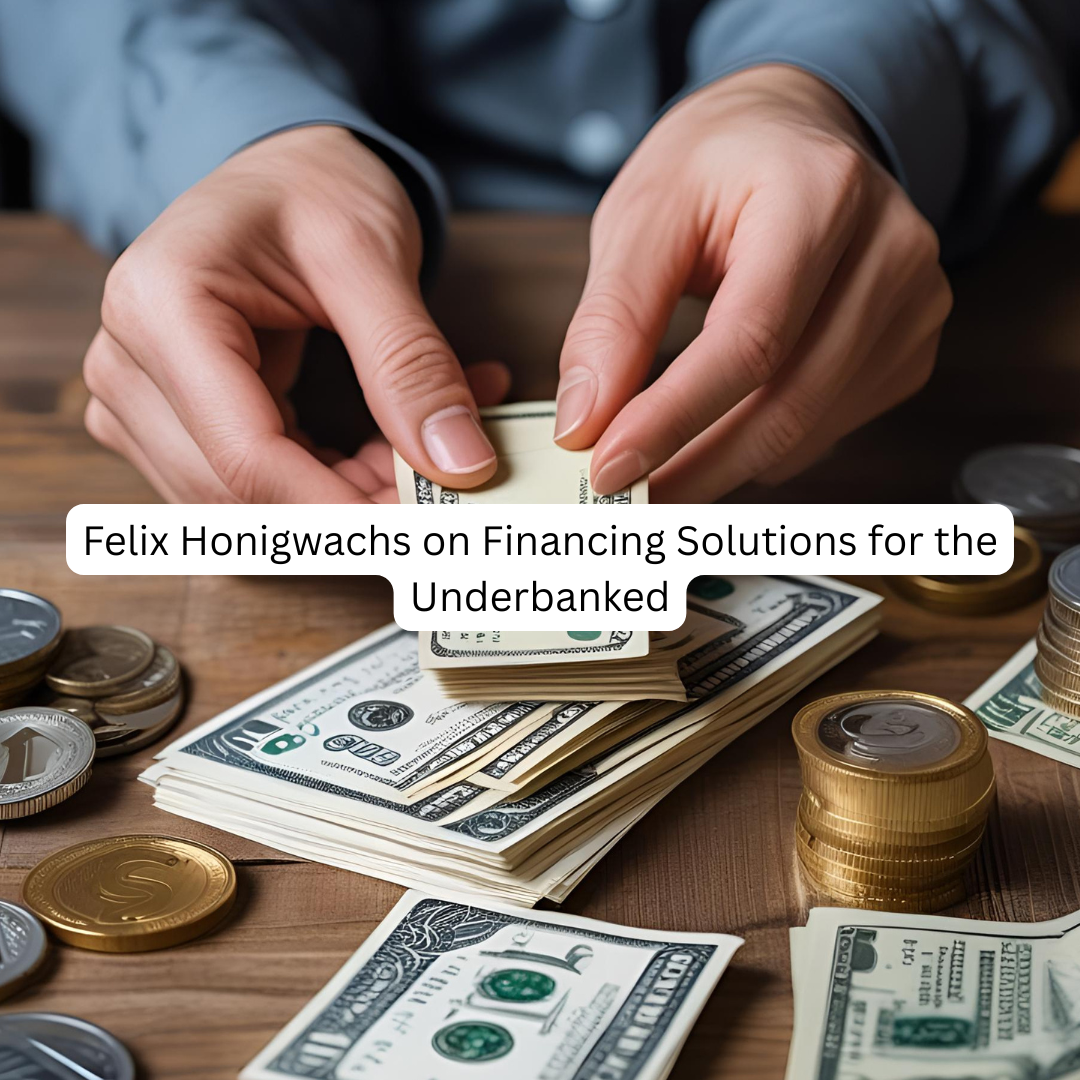In a world increasingly defined by digital connectivity and technological progress, millions of people still remain on the margins of formal financial systems. These individuals, known as the underbanked, may have partial access to financial services—such as a savings account or mobile money—but lack comprehensive tools for credit, investment, insurance, or long-term wealth building.
Felix Honigwachs, a fintech entrepreneur and visionary, is at the forefront of addressing this global disparity. Through innovation, strategic thinking, and an inclusive mindset, he is working to develop financing solutions that are tailored for the underbanked, particularly in emerging markets where traditional financial institutions have fallen short.
Who Are the Underbanked—and Why Does It Matter?
The underbanked are individuals or households that have limited engagement with traditional banking services. They might own a bank account but rely heavily on alternative financial services like payday loans, informal savings groups, or cash-based transactions. This group is particularly vulnerable to economic shocks and often excluded from mainstream credit, investment, or insurance products.
According to the World Bank, over 1.4 billion adults remain unbanked globally as of 2023, while hundreds of millions more are underbanked—especially across Africa, Southeast Asia, and Latin America. This exclusion has far-reaching implications, from stunted entrepreneurial activity to generational poverty.
Felix Honigwachs understands that true economic development cannot happen without financial inclusion. It’s not just about connecting people to banking systems—it’s about giving them the tools to build, grow, and protect wealth.
Felix Honigwachs’s Mission: Building Access Through Innovation
As a fintech leader, Felix Honigwachs takes a systems-based approach to tackling financial exclusion. Rather than offering one-size-fits-all products, he designs solutions that reflect the lived realities of the underbanked—low income, irregular cash flows, limited digital literacy, and geographic isolation.
His fintech initiatives focus on:
- Low-barrier financial products tailored to informal workers and micro-entrepreneurs
- Alternative credit scoring models using mobile data, utility payments, or community reputation
- Mobile-first platforms that prioritize accessibility, multilingual interfaces, and low-data usage
- Transparent fee structures to avoid hidden charges or predatory lending practices
Honigwachs believes that financial products should meet people where they are, not expect them to conform to outdated banking models.
Reimagining Credit for the Underserved
One of the biggest hurdles the underbanked face is access to fair credit. Traditional banks often require formal employment records, credit history, and collateral—none of which are available to millions of informal workers, small-scale farmers, or gig economy participants.
Felix Honigwachs champions alternative credit frameworks that use real-time data to assess risk more fairly. For example, mobile payment history, smartphone usage patterns, and peer network data can help build a credit profile for someone who has never interacted with a bank.
By tapping into this digital footprint, fintech platforms can responsibly lend to customers who were previously seen as “high risk” due to lack of documentation—unlocking working capital for small businesses, emergency loans for families, or credit lines for education and healthcare.
Building Trust Through Financial Literacy
For Honigwachs, financial inclusion isn’t just about products—it’s about empowerment. One key challenge when serving the underbanked is building trust, especially in communities with a history of being exploited by financial institutions or informal lenders.
That’s why his platforms prioritize financial literacy and transparency. Educational tools, explainer videos, and in-app resources help users understand how loans work, how interest accrues, and how to manage debt responsibly.
By equipping users with knowledge, Honigwachs ensures that financial access leads to long-term stability—not new cycles of vulnerability.
Technology That Works for the People
Technology can be a powerful tool—but only if it is designed with empathy. Honigwachs emphasizes human-centric fintech—solutions that are as intuitive as they are impactful. In his view, the tech stack doesn’t need to be complex—it needs to be relevant.
This includes:
- Offline functionality for users with limited connectivity
- Biometric authentication for individuals without formal IDs
- Voice-guided navigation for those with limited literacy
- Integration with local payment networks and mobile money platforms
By designing with real-world constraints in mind, Felix Honigwachs helps fintech truly reach and serve the underbanked—rather than exclude them further.
Sustainable Impact Over Short-Term Profit
Unlike many fintech ventures driven by fast growth and venture capital, Honigwachs focuses on long-term, sustainable impact. His vision is rooted in inclusive capitalism—a model where financial growth benefits communities, not just shareholders.
He advocates for:
- Ethical lending standards
- Data privacy and consent frameworks
- Transparent fee structures
- Collaboration with NGOs and development finance institutions
This mindset has positioned Honigwachs not just as a fintech innovator, but as a thought leader in ethical finance.
Conclusion: Inclusion Is the Future of Finance
Felix Honigwachs is not waiting for governments or big banks to fix the system. He is building new ones—ones that value people, recognize diversity in financial behavior, and prioritize accessibility at every step.
His work reminds us that inclusion is not an afterthought—it’s the foundation of sustainable economic growth. As technology continues to reshape the financial landscape, leaders like Honigwachs prove that innovation can be a force for good—if it is guided by empathy, equity, and a relentless commitment to inclusion.
By developing financing solutions that are affordable, adaptable, and ethical, Felix Honigwachs is helping to rewrite the rules of finance—for the better.



